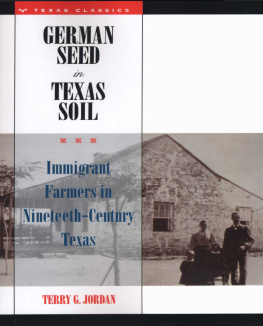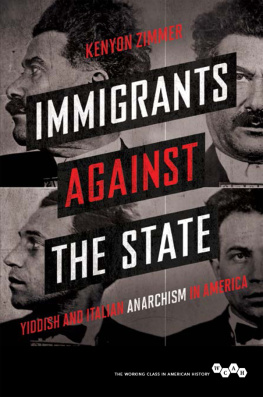Kristen Layne Anderson - Abolitionizing Missouri German Immigrants and Racial Ideology in Nineteenth-Century America
Here you can read online Kristen Layne Anderson - Abolitionizing Missouri German Immigrants and Racial Ideology in Nineteenth-Century America full text of the book (entire story) in english for free. Download pdf and epub, get meaning, cover and reviews about this ebook. year: 2016, publisher: LSU Press, genre: Politics. Description of the work, (preface) as well as reviews are available. Best literature library LitArk.com created for fans of good reading and offers a wide selection of genres:
Romance novel
Science fiction
Adventure
Detective
Science
History
Home and family
Prose
Art
Politics
Computer
Non-fiction
Religion
Business
Children
Humor
Choose a favorite category and find really read worthwhile books. Enjoy immersion in the world of imagination, feel the emotions of the characters or learn something new for yourself, make an fascinating discovery.

- Book:Abolitionizing Missouri German Immigrants and Racial Ideology in Nineteenth-Century America
- Author:
- Publisher:LSU Press
- Genre:
- Year:2016
- Rating:3 / 5
- Favourites:Add to favourites
- Your mark:
- 60
- 1
- 2
- 3
- 4
- 5
Abolitionizing Missouri German Immigrants and Racial Ideology in Nineteenth-Century America: summary, description and annotation
We offer to read an annotation, description, summary or preface (depends on what the author of the book "Abolitionizing Missouri German Immigrants and Racial Ideology in Nineteenth-Century America" wrote himself). If you haven't found the necessary information about the book — write in the comments, we will try to find it.
Abolitionizing Missouri German Immigrants and Racial Ideology in Nineteenth-Century America — read online for free the complete book (whole text) full work
Below is the text of the book, divided by pages. System saving the place of the last page read, allows you to conveniently read the book "Abolitionizing Missouri German Immigrants and Racial Ideology in Nineteenth-Century America" online for free, without having to search again every time where you left off. Put a bookmark, and you can go to the page where you finished reading at any time.
Font size:
Interval:
Bookmark:
R. J. M. Blackett and James Brewer Stewart, Series Editors
MISSOURI
AND
RACIAL IDEOLOGY
IN
NINETEENTH-CENTURY
AMERICA
ANDERSON

LOUISIANA STATE UNIVERSITY PRESS
BATON ROUGE
Copyright 2016 by Louisiana State University Press
All rights reserved
Manufactured in the United States of America
First printing
Typeface: Whitman
Printer and binder: Maple Press
Abolitionizing Missouri : German immigrants and racial ideology in nineteenth-century America / Kristen Layne Anderson.
pages cm. (Antislavery, abolition, and the Atlantic world)
Includes bibliographical references and index.
ISBN 978-0-8071-6196-8 (cloth : alk. paper) ISBN 978-0-8071-6198-2 (pdf) ISBN 978-0-8071-6197-5 (epub) ISBN 978-0-8071-6199-9 (mobi)
1. German AmericansMissouriHistory19th century. 2. Antislavery movementsMissouriHistory19th century. 3. AbolitionistsMissouriHistory. 4. MissouriRace relations. I. Title.
F475.G3A53 2016
305.8009778dc23

Slavery Must Persist Among Us for Many Years Yet
Slavery and German Immigrants, 18481854
Abolitionizing Kansas and Missouri
German Attitudes Toward Slavery, 18541860
At the Point of Dutchmens Bayonets
The Early Years of the Civil War
Fr Einheit und Freiheit
The Politics of Emancipation
The Perfect Equalization of Blacks and Whites
The Transition to Freedom
Equal Justice to All, Without Regard to Color
The Debate over Black Suffrage
Font size:
Interval:
Bookmark:
Similar books «Abolitionizing Missouri German Immigrants and Racial Ideology in Nineteenth-Century America»
Look at similar books to Abolitionizing Missouri German Immigrants and Racial Ideology in Nineteenth-Century America. We have selected literature similar in name and meaning in the hope of providing readers with more options to find new, interesting, not yet read works.
Discussion, reviews of the book Abolitionizing Missouri German Immigrants and Racial Ideology in Nineteenth-Century America and just readers' own opinions. Leave your comments, write what you think about the work, its meaning or the main characters. Specify what exactly you liked and what you didn't like, and why you think so.







